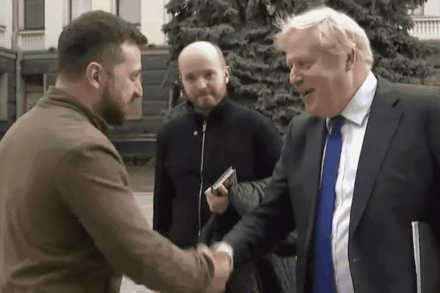Why are Ukrainians calling Russian invaders ‘orcs’?
Ukrainian victims of Russia’s war have taken to calling their invaders ‘orcs’. The word is familiar to JRR Tolkien readers as the name given to the monstrous anthropoids in his epic novel ‘The Lord of the Rings’. In all Tolkien’s stories of the wars in Middle Earth, orcs are violent, destructive and untrustworthy, wreaking wanton havoc wherever they go. It is not hard to see why the people of Ukraine use this name for the invaders of their land. But although Tolkien made the word his own, its origins are, as he acknowledged himself, much older. Orcs first appeared in a tenth-century glossary written in Old English (Anglo-Saxon) and, more famously, in line 112 of the





















